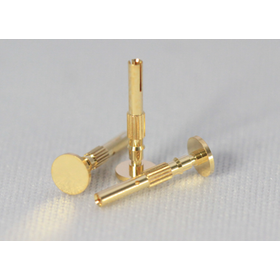Verification of Allergen Management in the Manufacturing Process (Immunochromatography Method)
The allergen map created through wipe tests will serve as an invisible partition, leading manufacturing personnel to voluntarily prevent cross-contamination, among other expected effects.
"Hygiene management based on HACCP" includes "setting verification methods" and "documentation and record-keeping." Additionally, certification standards such as FSSC22000 (Category: C.I.K), JFS-B (Sector: E/L), and JFS-C (Sector: E) require the development and implementation of an allergen management plan. In addition to screening tests for the final product (ELISA method), using monitoring tests during the manufacturing process (immunochromatography method) further enhances the effectiveness of allergen management. By cycling through allergen management steps 1 to 4, it is possible to eliminate allergen points (sources of contamination). 1. Visualization through allergen mapping 2. Problem identification through visualization 3. Hypothesizing and improving contamination causes 4. Verifying improvement effects through wipe tests.
Inquire About This Product
basic information
Allergen wipe test (Immunochromatography method) 1. Please select the target allergen items (egg, milk, wheat, buckwheat, peanuts, crustaceans, soybeans). 2. We will send you a wipe test kit and a wipe manual. 3. Please wipe the allergen management points on your production line and send them to us refrigerated. Additional costs will apply for multiple items, charged per item. Upon request, we also offer on-site wipe services (additional cost). Allergen map creation (a plot of where allergens are located within the facility on a diagram) Please provide a floor plan or photos of your production line. We will create a map indicating allergen detection/non-detection. Please request the allergen map creation along with the wipe test.
Price range
P2
Delivery Time
Applications/Examples of results
"Hygiene management in accordance with HACCP" stipulates "the establishment of verification methods" and "documentation and record-keeping." Additionally, the internationally recognized standard for food safety systems, FSSC22000, also requires the development of an allergen management plan. By conducting monitoring tests of the manufacturing process using the immunochromatographic rapid detection method in addition to screening tests of the final product using the ELISA method, more effective allergen management can be achieved. Allergen mapping through wipe tests of the manufacturing process serves as an invisible partition, leading to expected outcomes such as manufacturing personnel taking voluntary actions to prevent cross-contamination.
catalog(1)
Download All CatalogsCompany information
We originated from the analysis department of House Foods. Not only do we conduct test analyses to ensure food safety, but we also leverage our long-developed analytical skills and consulting capabilities to digitize and acquire characteristic elements of agriculture, water, livestock products, and companies. Based on the acquired data, we support branding and marketing efforts aimed at expanding sales. With a track record of over 6,000 test analyses annually and partnerships with more than 300 companies, we have gained "technology," accumulated "experience," and possess the "sensitivity" to integrate individual analysis results with knowledge of ingredients and processes. We propose optimal test analyses and consulting to solve challenges.





![[Data] Troubled! Solution! A Reverse Lookup Collection of Food Allergen Testing by Scene](https://image.mono.ipros.com/public/product/image/174/2000810717/IPROS25322272528850935313.png?w=280&h=280)

![[Information] Food Allergen Testing Specific Ingredient Screening Test and Confirmation Test](https://image.mono.ipros.com/public/product/image/bef/2000822188/IPROS56707996739197133860.png?w=280&h=280)
![[Data] Residual Pesticides / Veterinary Medicines Testing](https://image.mono.ipros.com/public/product/image/daf/2000822268/IPROS62477987615160081882.png?w=280&h=280)



![[Research Material] Global Market for Serum Testing](https://image.mono.ipros.com/public/product/image/b51/2000846051/IPROS66800269676319831603.jpeg?w=280&h=280)



![[Processing Example] Achieving high-precision processing and quality stabilization of catheter tips.](https://image.mono.ipros.com/public/product/image/144896/IPROS16433267616338975086.png?w=280&h=280)
